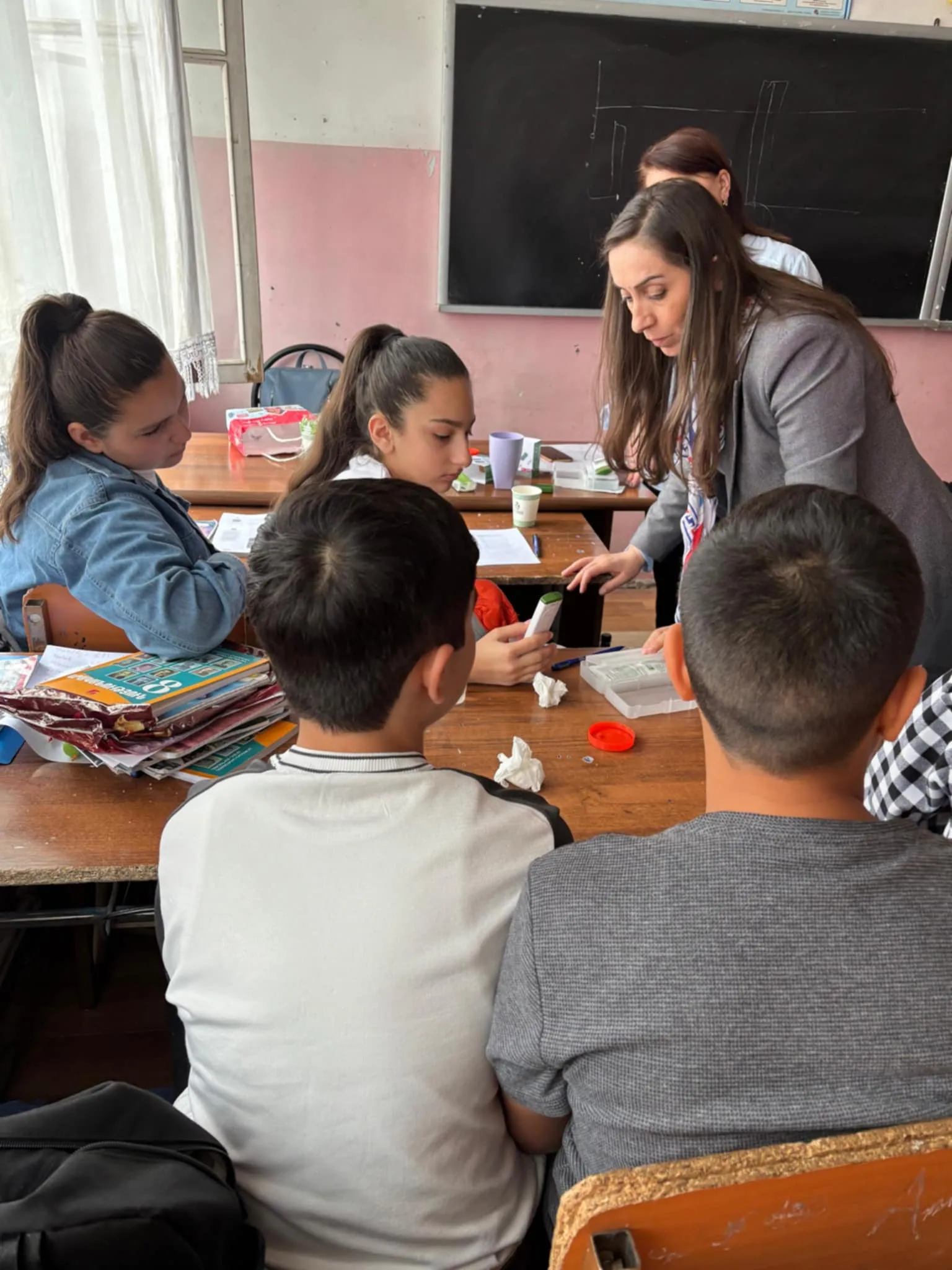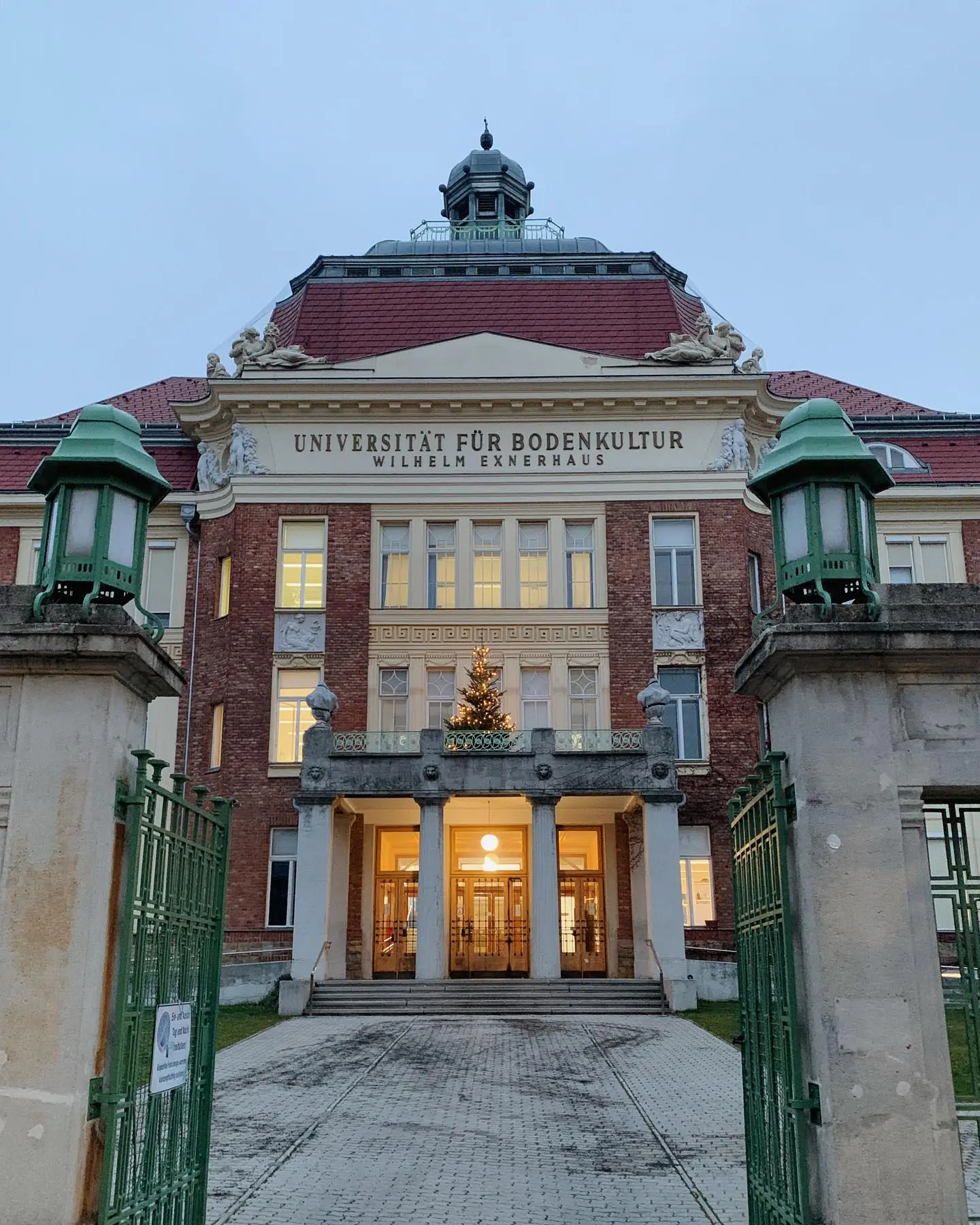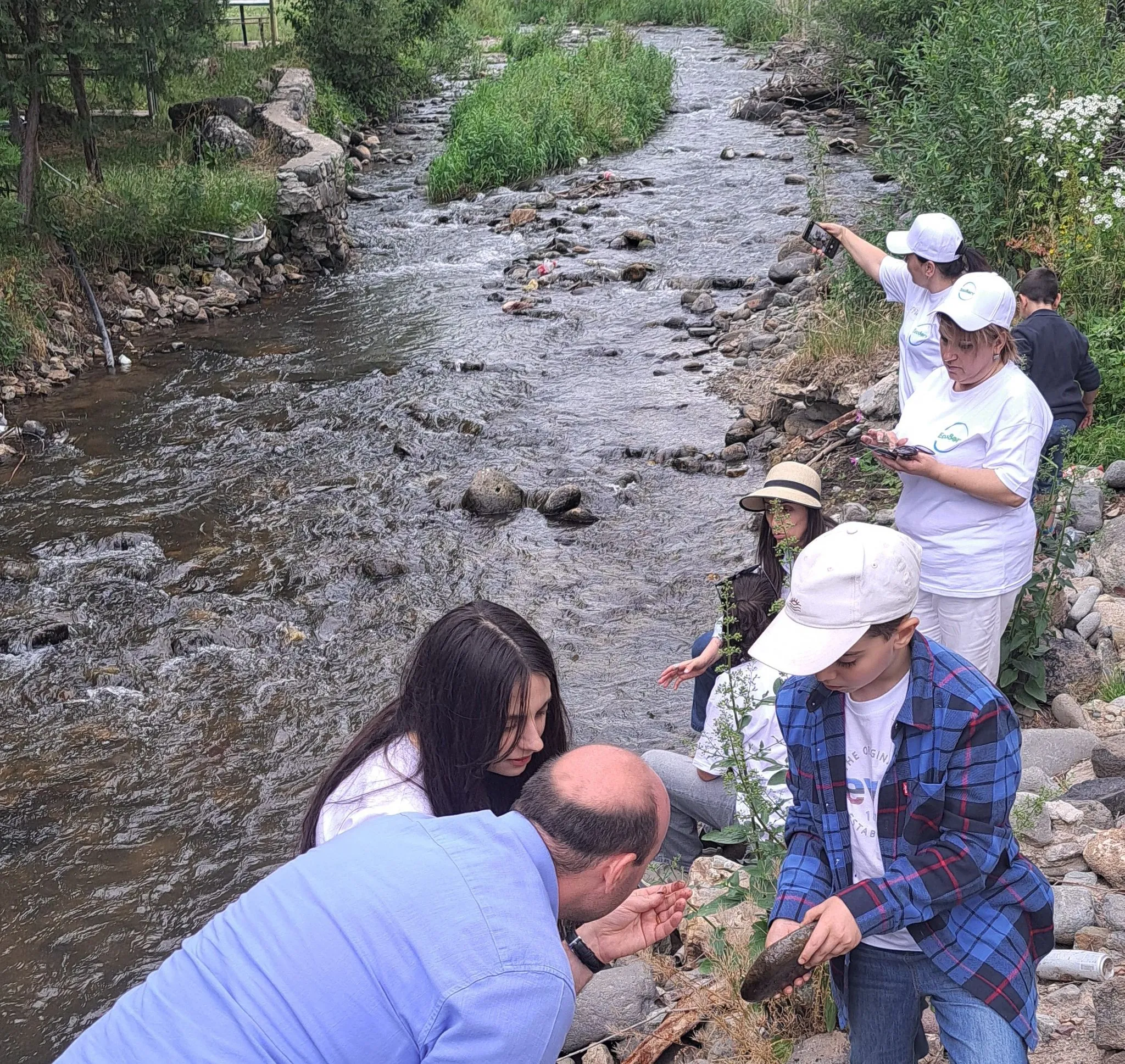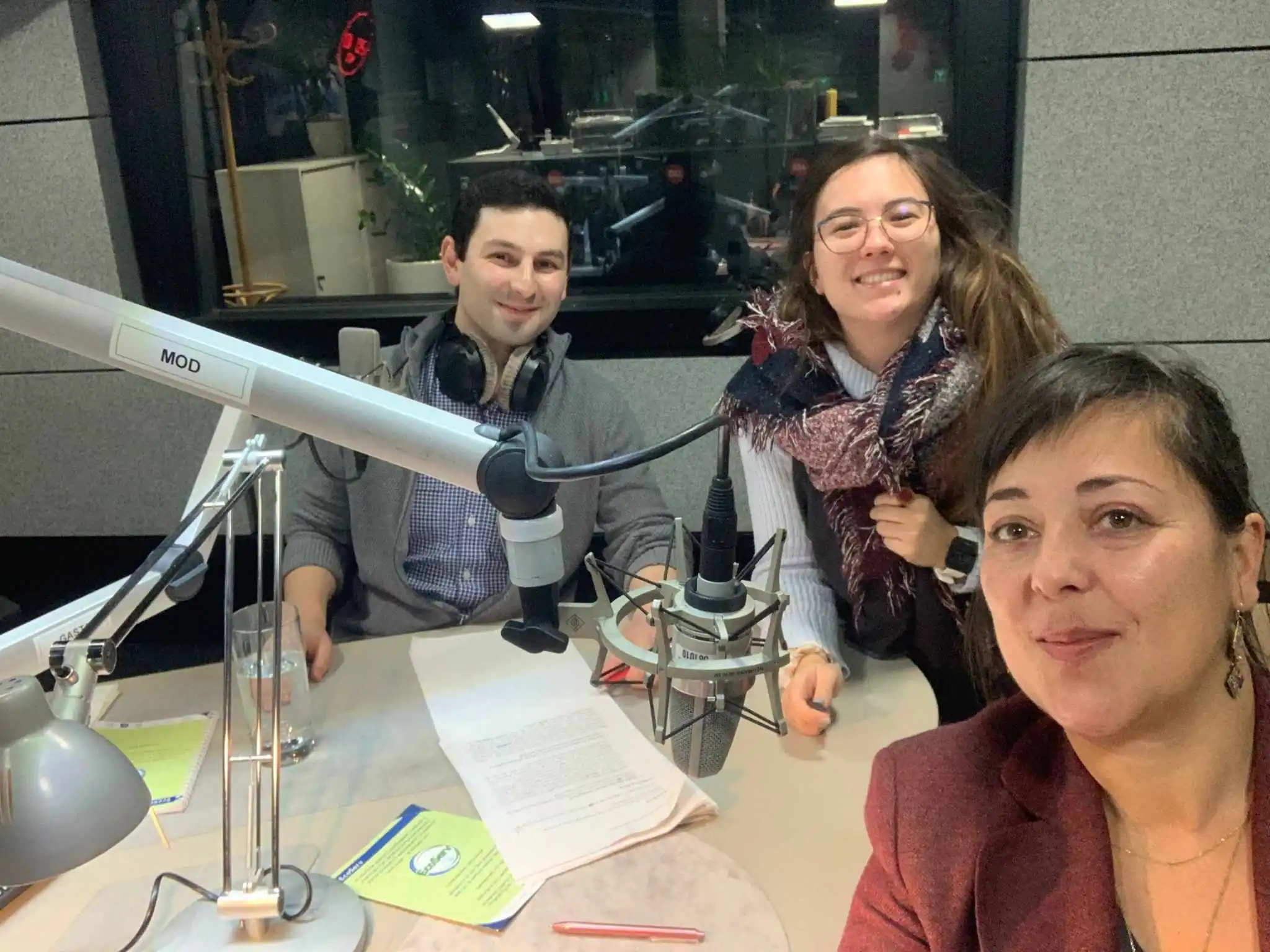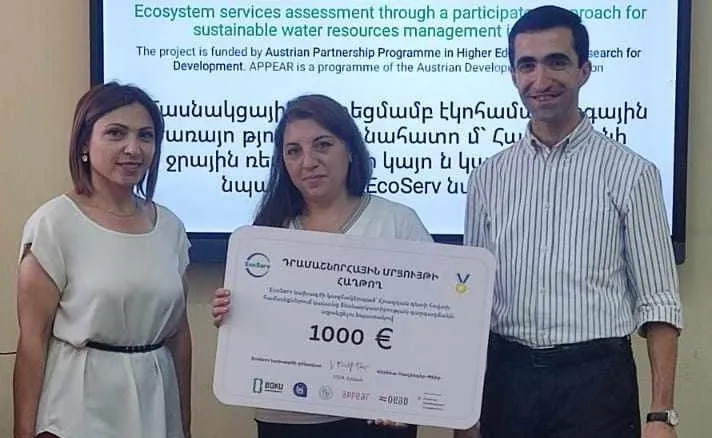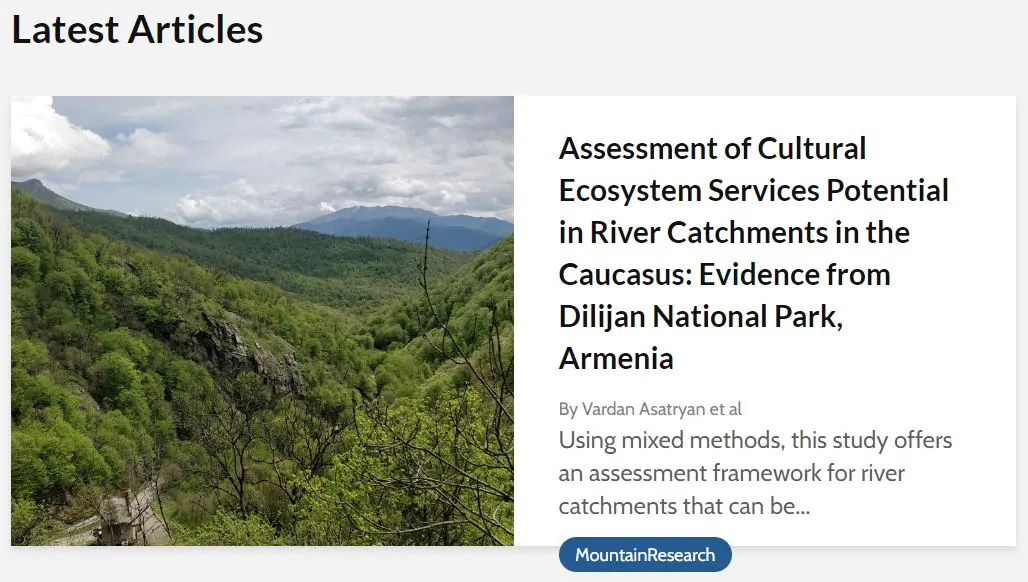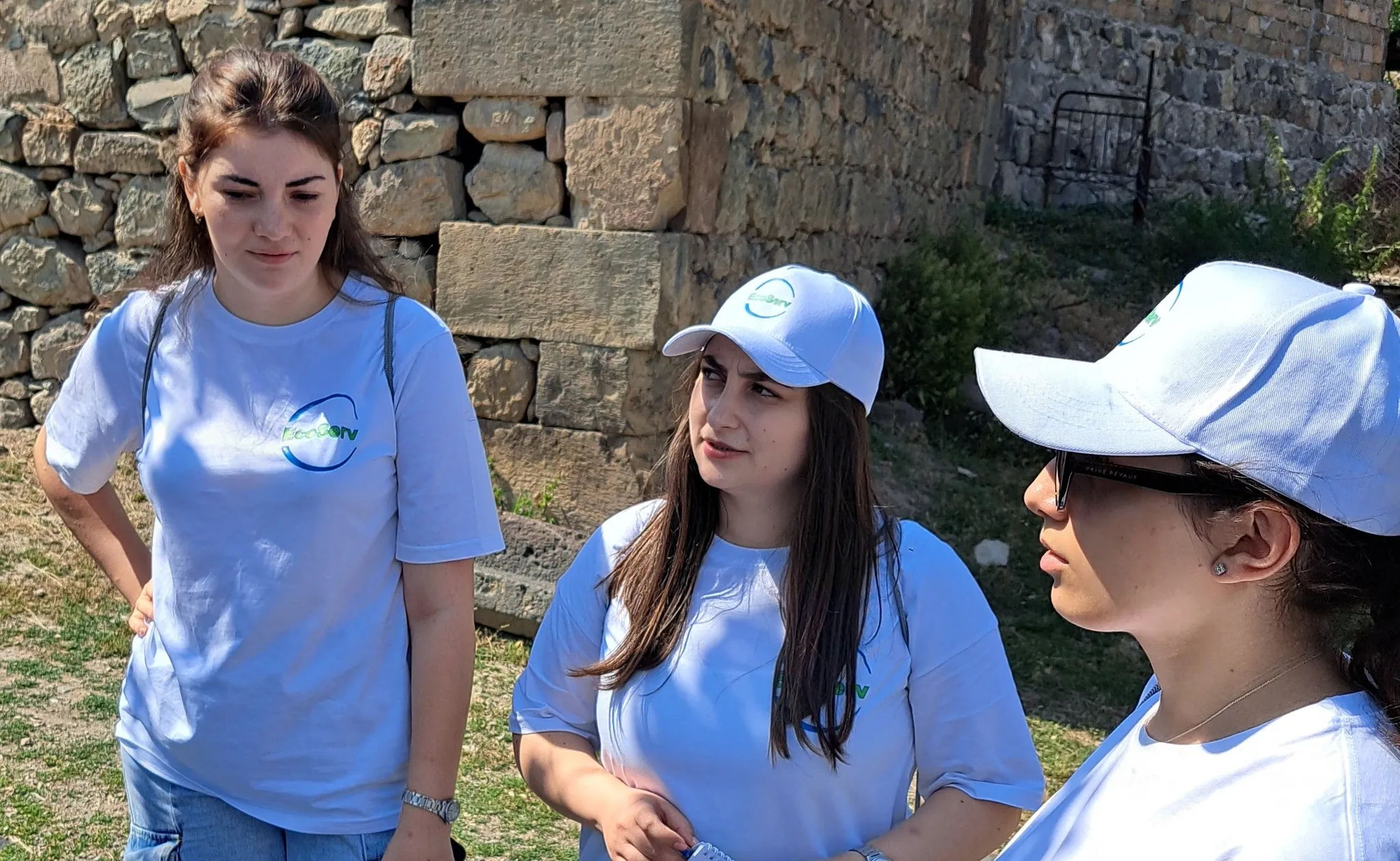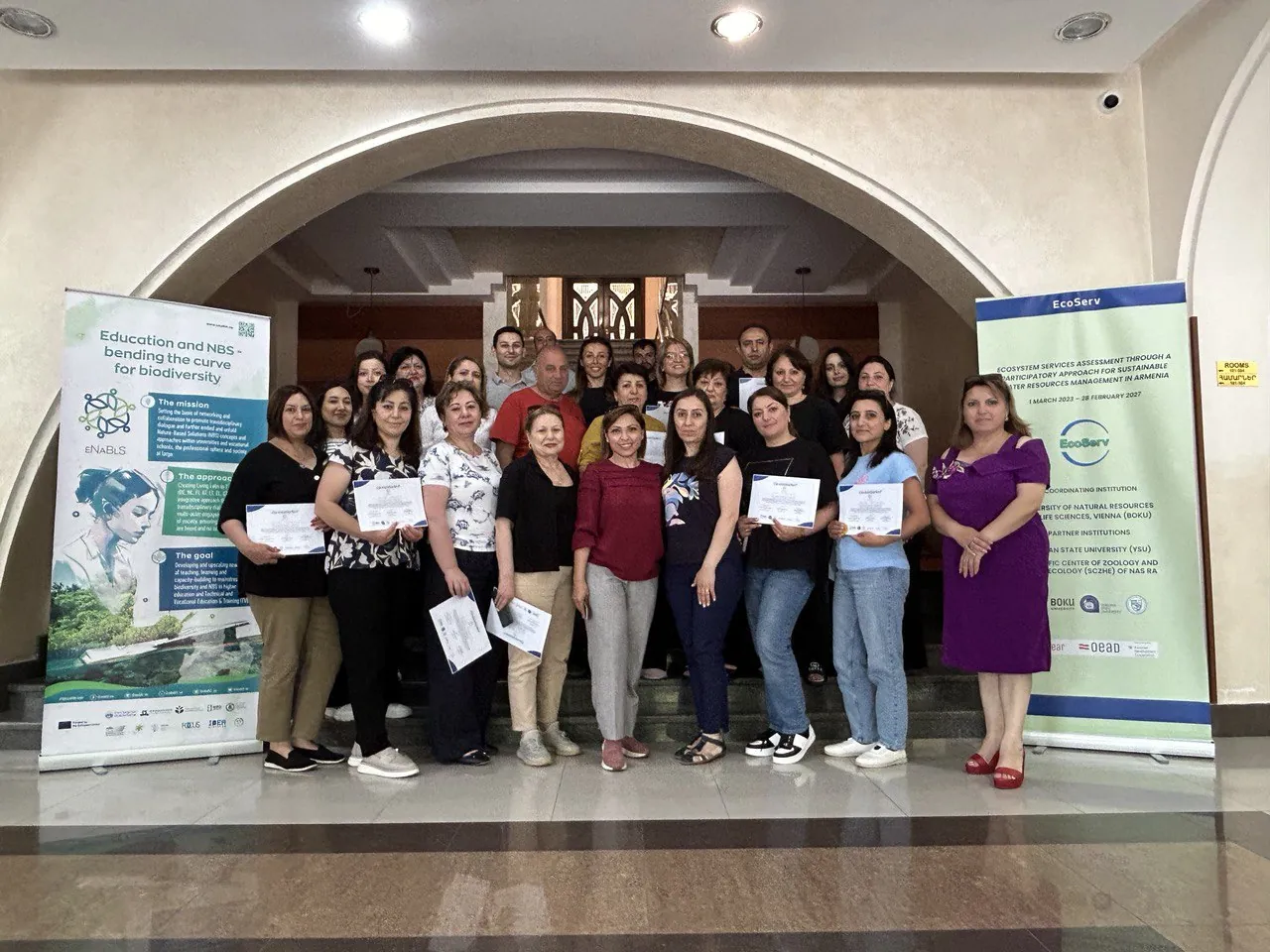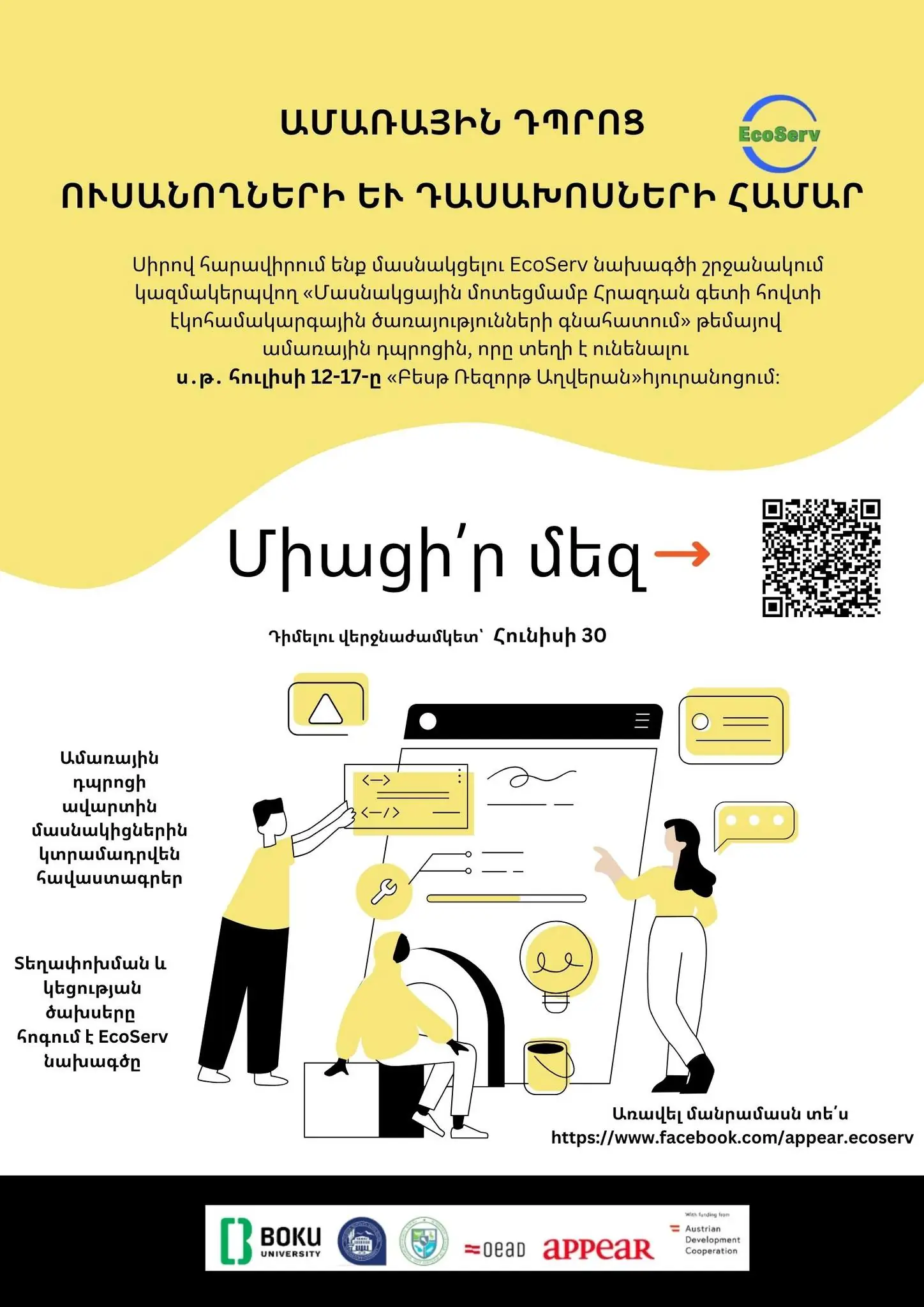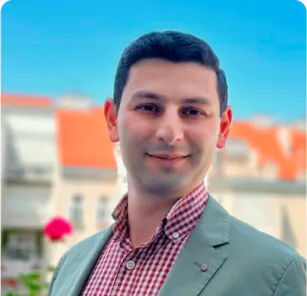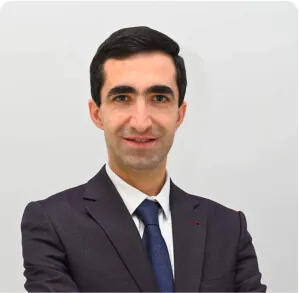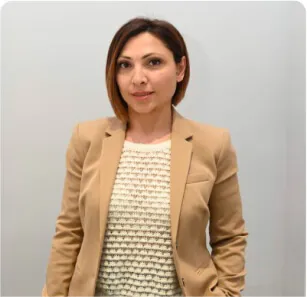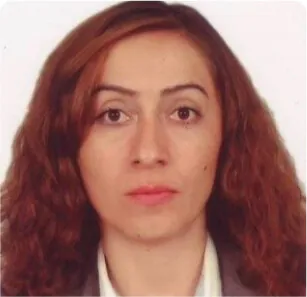Supporting Mutual Learning Beyond Data Collection
The EcoServ Citizen Science initiative is building strong collaborations across the Hrazdan River basin. Today, the project is already working in 3 regions (upper, middle, and lower streams), with 5 schools, 8 teachers, and around 100 students actively engaged. Together, they explore three crucial topics: irrigation water quality, ecological status of the river, and the links between pollution and health.
Students and teachers investigate these issues through hands-on fieldwork and project-based learning, with continuous support from the EcoServ team. Regular exchanges ensure strong partnerships: students visit the Scientific center of zoology and hydroecology of National Academy of Sciences, while the EcoServ team travels to schools, guiding and supporting student research. The team is always present when students showcase their findings, underlining the value of their contributions.
Developing Research Capacity in Schools
Beyond environmental monitoring, the project focuses on empowering teachers and students as local change-makers. Through place-based trainings, participants gain research skills and practical knowledge on water monitoring. For instance, recent workshops introduced teachers and students to measuring devices such as pH, conductivity meters, dissolved oxygen and temperature loggers followed by real-time field measurements. This hands-on learning helps participants take ownership of local water resources, fostering a sense of stewardship and long-term engagement.
Celebrating Student Achievements
Student projects are regularly presented at national and local events, showcasing their growing expertise. On March 29, 2025, during the All-Armenian School Science Festival at the National Academy of Sciences, an EcoServ project led by Lusine Hakobyan won a special award from the Academy. On May 3 students from Nor Hachn secondary school under the supervision of Astghik Chobanyan, teacher of biology, were nominated for the best investigation within the third all-school conference organized by Ayb school. In addition, two local schools from Nor Hachn and one school from Bjni village presented their results at the EcoServ Summer School in Armenia (July 2025), in the presence of international partners from the APPEAR project. Students demonstrated their work with bioindication methods, irrigation water quality measurements, data collection, and result interpretation, proving that citizen science can inspire both scientific excellence and community action.
Looking Ahead
The EcoServ team aims to expand citizen science activities further, engaging more local communities in protecting the Hrazdan River, a lifeline for Armenia that provides irrigation water, biodiversity, and climate regulation. By fostering environmental awareness and scientific skills among youth, EcoServ contributes to sustainable water management and inspires the next generation of local leaders.
